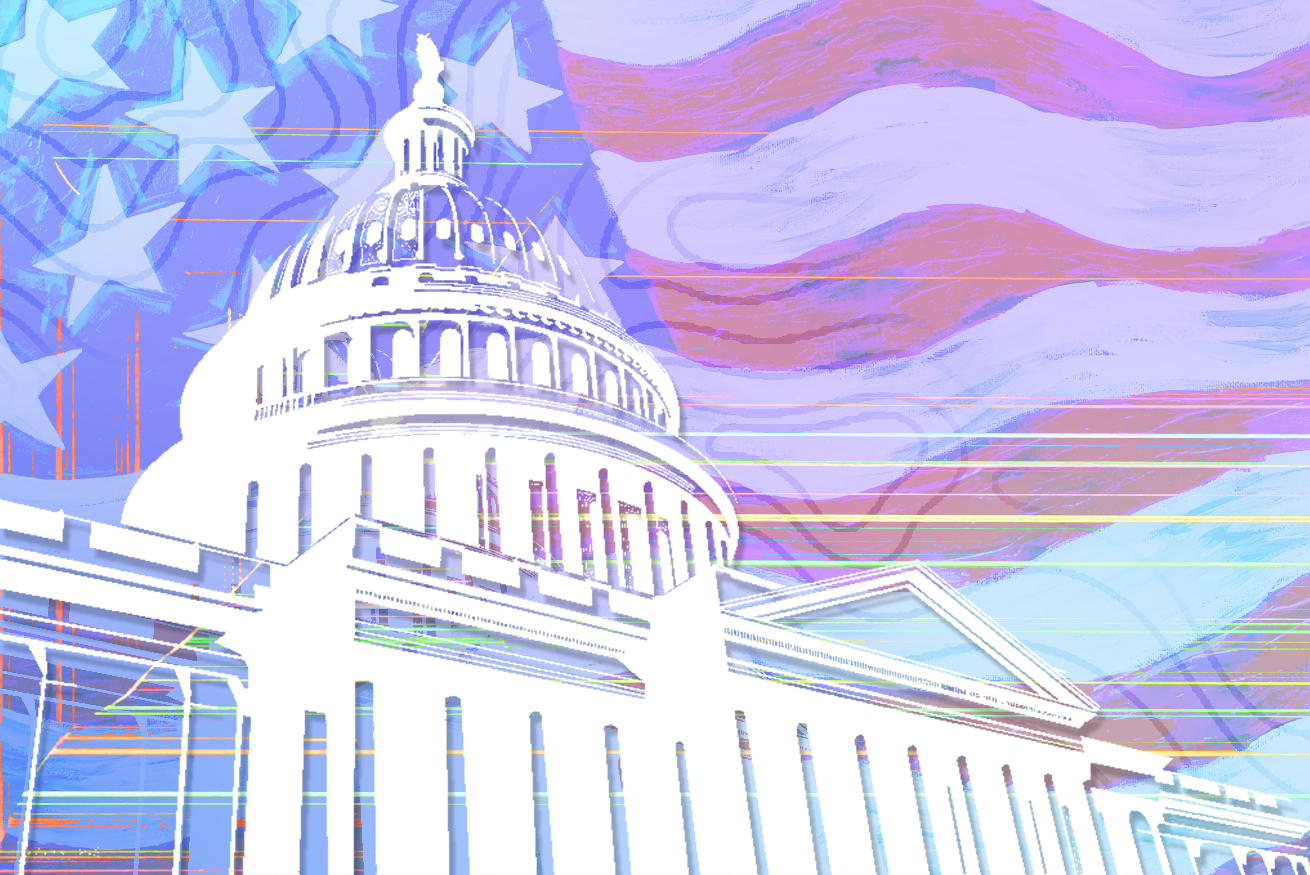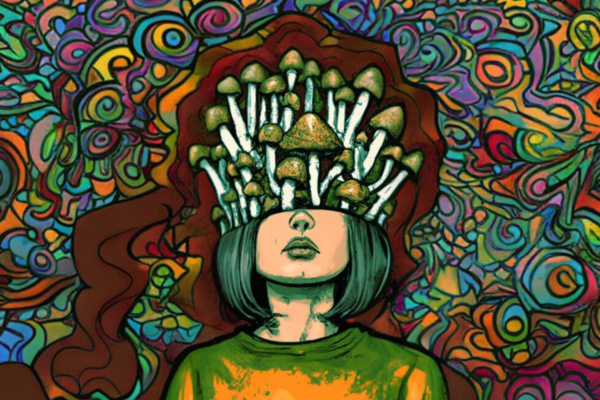
Voters in six states have the opportunity to send a pro drug legalization message to Washington DC on cannabis and psychedelics in the midterm elections
Way back in January 2012, I wrote an article previewing what could be an exceptional year for drug policy reform because of Colorado and Washington State’s opportunity to be the first states to legalize marijuana for recreational use —which voters of course did. While you didn’t have to be Nostradamus to sense that something big might be in play for drug policy reform, when we fast forward a decade since, another 17 states have now legalized recreational marijuana. And so, sure, while 2012 was indeed an exceptional year for drug policy reform, clearly, it was only getting started.
Once again, voters in five states will have the opportunity to legalize drugs in some way. In the upcoming November elections marijuana legalization is on the ballot in Maryland, Missouri, Arkansas, South Dakota, and North Dakota. And voters in Colorado will have the chance to be the first state to legalize possession of psychedelics and allow psychedelic assisted therapy for adults.
Here’s a quick breakdown of those initiatives and the most recent available polling data.
Arkansas Issue 4
- What it does:
- Legalizes the purchase and possession of marijuana for adults over 21 and establishes a regulated commercial marijuana industry.
- Purchase and possession limits:
- Allows the purchase and possession of up to one ounce of marijuana from a licensed business.
- Personal cultivation:
- Not permitted.
- Taxes:
- In addition to paying state sales tax on any purchase, there is an additional 10% sales tax on cannabis sales.
- Criminal legal reforms:
- none
- Polling:
- Recent polling from Talk Business & Politics-Hendrix College shows Issue 4 bleeding support in the past month.
- Back in September public opinion in support of legalization was well out in front —58% in favor, 29% against, and 12.5 undecided (margin of error +/- 3.8%). However, the poll released two weeks ago now shows only 50.5% in favor, with 43% against, and 6.5% undecided (margin of error +/- 3.9%).
Proposition 122 in Colorado
- What it does:
- Legalizes the possession, use, growing, and nonmonetary gifting of what the proposition calls “natural medicine” for adults over 21 —which is defined as “Dimethyltryptamine; Ibogaine; Mescaline (excluding Lophophora Williamsii (“Peyote”)); Psilocybin; or Psilocyn.”
- Establishes a regulated natural medicine access program where adults 21 and over can receive psychedelic assisted therapeutic treatments at a licensed “healing center” under the supervision of a trained practitioner.
- Purchase and Possession limits:
- There is no commercial business aspect to this proposition and there are no possession limits either.
- Personal cultivation:
- Cultivating plants or fungi that can produce natural medicine as defined above is allowed so long it’s done on the grounds of a private residence or home and they’re not accessible to anyone under 21.
- Taxes:
- Because there is no commercial sale component there is no tax scheme.
- Criminal legal reforms
- Anyone with a conviction for conduct that would be legal under the new law can petition the trial court where the case occurred to have their record sealed — which would automatically happen if the prosecutor doesn’t file an objection.
- Polling:
- An Emerson College poll that took place between September 18-19 showed 40.86% opposing the measure, 36.26% supporting it, and 22.88% unsure. The margin of error was +/-3%. That’s obviously a huge amount of undecided voters still out there and if there truly are that many people still unsure then how they break on election day will determine the vote.
- However, Marijuana Moment’s Kyle Jaeger provided a bit more context on the state of public opinion, where “a different poll conducted by the firm FM3 and commissioned by the Natural Medicine Health Act campaign shows voters strongly embracing the proposed policy change.” That poll shows 55% of voters definitely or probably supporting the law, 28% definitely or probably opposing, and 17% undecided (though 5% of the undecides lean yes, 3% lean no.)
- Of note: In a recent debate, Colorado Governor Jared Polis, despite publicly supporting Colorado’s marijuana legalization amendment in 2012, indicated he had not decided how to vote on prop 122.
Maryland Question 4
- What it does:
- Legalizes marijuana for adults over 21 and activates a companion piece of legislation that’s already been enacted by the Maryland legislature that will govern the early implementation.
- Purchase and possession limits:
- Allows the purchase and possession of 1.5 ounces from a regulated commercial marijuana business and eliminates criminal penalties for possessing up to 2.5 ounces.
- Personal cultivation:
- Yes, up to two plants for personal use and nonmonetary gifting.
- Taxes:
- The tax and regulatory scheme for commercial cannabis businesses will be subsequently hashed out by the legislature if the measure passes.
- Criminal legal reforms:
- Automatically expunge past convictions for crimes that would now be legal, people currently incarcerated for crimes that would now be legal are eligible for resentencing, and those convicted of possession with intent to sell can seek an expungement three years after completing their sentence.
- Polling/forecast:
- This is almost certainly going to pass! A recent poll shows that a whopping 73% of Maryland voters support legalizing cannabis.
Amendment 3 in Missouri
- What it does:
- Legalizes the purchase and possession of marijuana for adults over 21 and establishes a regulated commercial marijuana industry.
- Purchase and possession limits:
- Individuals can purchase, possess, and deliver without remuneration up to three ounces of marijuana.
- Personal cultivation:
- Allows individuals to grow “up to six flowering marijuana plants, six nonflowering marijuana plants (over fourteen inches tall), and six clones (plants under fourteen inches tall) provided the person is registered with the department for cultivating marijuana plants.” The plants cannot be visible from normal public view and must be kept at a private residence in a locked space.
- Taxes:
- There would be a 6% sales tax for marijuana on top of the state’s general sales tax.
- Criminal legal reforms:
- There would be automatic expungements for people with prior convictions for conduct that would now be legal.
- Anyone currently incarcerated for conduct that is now legal can petition the sentencing court to vacate the sentence, be immediately release from custody, and have the case records expunged.
- Anyone on probation or parole for a crime that would now be legal under the law will have their sentence vacated, their parole or probation term immediately terminated, and the case records expunged.
- Individuals with certain convictions for marijuana offenses that would not be legal under the new law can still petition the courts to get released from custody, vacate sentences, and expunge records.
- Polling:
- The polling on this initiative is anything but static —two polls in mid-September showed support for legalization at 62% and 43%, respectively. While the most recent poll from Emerson College published at the end of September 48.3 % of voters supporting legalization.
North Dakota Measure 2
- What it does:
- Legalizes the purchase and possession of marijuana for adults over 21 and establishes a regulated commercial marijuana industry.
- Purchase and possession limits:
- Individual purchase limits are one ounce of cannabis, four grams of concentrate, and 500 milligrams of an infused product.
- Personal cultivation:
- Permits individuals to cultivate up to three cannabis plants on their property for personal use only (all cannabis must be kept at the property where the plant is).
- Taxes:
- There is no specific cannabis tax —cannabis purchases would be subject to regular old state sales tax.
- Criminal legal reforms:
- None.
- Polling/forecast:
- There is no available polling on this initiative so it’s anyone’s guess what will happen. The only poll I could find is from way back in 2018, where 59% of voters opposed legalizing recreational cannabis. However, because of the old age of the poll I wouldn’t put too much stock in it, though I certainly would not assume the measure will pass. It’s hard to imagine public opinion hasn’t softened some towards legalizing marijuana in the last four years, but absent any evidence supporting that, Measure 2 is likely facing an uphill battle.
Measure 27 in South Dakota
- What it does:
- Legalizes the purchase and possession of marijuana for adults 21 and over.
- Purchase and possession limits:
- Permits up to an ounce of marijuana and 8 grams of concentrate.
- Personal cultivation:
- Allows up to three plants for personal use only.
- Taxes:
- There is nothing in the proposed law’s language that deals with taxes and regulations. The legislature will work that out if itpasses.
- Criminal legal reforms:
- There is nothing that addresses past injustices for conduct that would now be legal.
- Polling:
- This is not South Dakota’s first rodeo when it comes to a marijuana legalization ballot initiative. In 2020, over 54% of South Dakotans voted to legalize marijuana, however, the state supreme court found it was unconstitutional.
- Despite that result just two years ago the current polling shows the measure trailing significantly.
- Polling published on August 17 shows 54.4% oppose, 43.8% in favor, and 1.8% undecided with a margin of error +/- 4.5%
- The most recent poll conducted between October 19-21 paints a similar picture, albeit with more undecideds than the one from August — 50.5% against, 39.7% in favor, with 9.8% undecided. This poll has a margin of error +/- 2.4%.
Maryland aside, no other initiative is polling significantly out in front. Arkansas, Colorado, and Missouri all look like toss ups that could go either way, while it seems the Dakota’s are leaning against. As we’ve recently seen, polling and public opinion surveys certainly have their limitations, so we’ll just have to wait and see what voters do on election day. But at the very least, it looks like we’ll have a 20th state with legal cannabis. Watch this space for a follow up post to see how these initiatives do with voters, as well as more criminal legal and drug policy analysis.
Brad R. Schlesinger, Esq is a criminal lawyer, drug policy analyst, and PSYC Advisory Board member.





